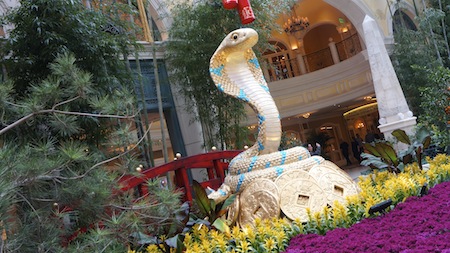It is now, of course, the Year of the Snake, as people of Chinese descent across the world today mark the Lunar New Year. ![]()
But, for world politics, the Chinese new year will bring the formal inauguration in March of Xi Jinping (习近平) as the next president of the People’s Republic of China, completing the transition from Hu Jintao (胡锦涛) to Xi as China’s ‘paramount leader’ — Xi already became the general secretary of the Chinese Communist Party (中国共产党) last November with the election of seven members (including five new members) of the Politburo Standing Committee of the CCP.
Furthermore, Li Keqiang (李克强) is set to succeed the popular, but now scandal-plagued Wen Jiabao (温家宝) as the premier of the PRC government at the opening of the 12th People’s National Congress in March.
Just last week, Xi drew a bright line against corruption in the wake of accusations that several of Wen’s family members had amassed fortunes largely due to Wen’s powerful position and in the aftermath of the most spectacular Chinese political scandal in two decades surrounding now-disgraced former Chongqing party secretary Bo Xilai (薄熙来).
In a widely covered speech, Xi pledged to go after ‘tigers and flies’ in his fight against corruption — meaning that his leadership would stand for corruption neither among the highest-ranking officials nor among rank-and-file bureaucrats.
It remains to be seen whether Xi has the will to carry through that fight, but he’s already drawing quite a stylistic contrast from the buttoned-down ‘China, Inc.’ image of his predecessor Hu.
Photo credit to Kevin Lees — Bellagio, Las Vegas, January 2013.
